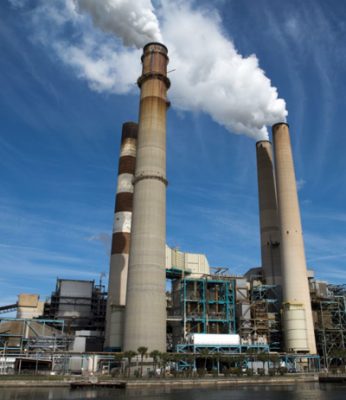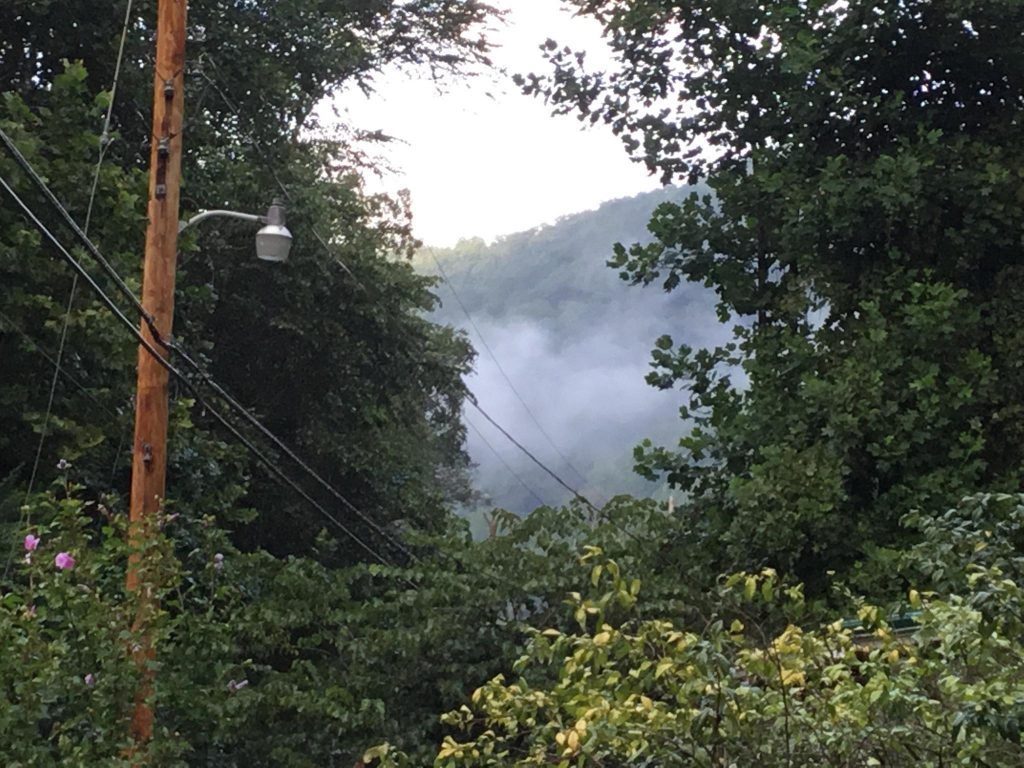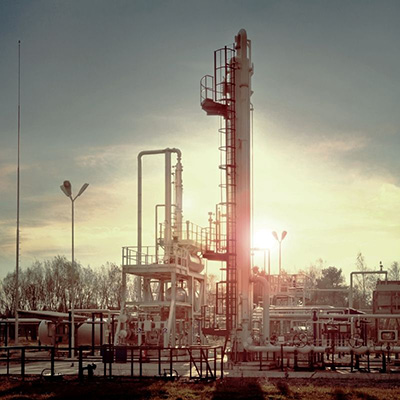Front Porch Blog
By Erin Savage, Willie Dodson and Matt Hepler
After a decade of focusing on water pollution from coal mining, Appalachian Voices’ coal impacts team is embarking on an ambitious project to monitor air pollution in communities impacted by coal mining and other fossil fuel infrastructure, and in other communities where air quality is an environmental justice concern.
“The air belongs to all of us. Sadly, we have learned that protective actions are never guaranteed, the honor system is broken, and watchdogs are almost always needed,” said Lucy Keeble of Monteagle, Tennessee. Keeble is a local leader with Statewide Organizing for Community eMpowerment, one of the grassroots groups that will work with Appalachian Voices to monitor local air quality as part of the project. “Accurate reporting of real numbers will give us credibility in our push for more stringent and effective regulations, oversight and enforcement with teeth.”
“Peace of mind is critical when understanding how your air and health are affected by what’s around you,” said Elizabeth and Anderson Jones in a statement on behalf of the Pittsylvania County, Virginia, NAACP. “We are delighted that the monitors will help us better understand the impacts from the fracked gas compressor stations near our home.”

Power plants are major sources of particulate matter pollution.
This month, Appalachian Voices learned that we were one of 132 community air monitoring projects awarded funding from the EPA. The funding comes from the Inflation Reduction Act and American Rescue Plan. Our project, the Upper South and Appalachia Community Air Monitoring Project — or USACAMP — entails partnering with 16 community groups and two universities to deploy about 80 monitors in communities across Tennessee, Virginia, Kentucky, West Virginia and Pennsylvania where air quality is impacted by fossil fuel extraction, processing and transport, among other polluting industries.
Appalachian Voices receives EPA grant for community air monitoring project
We will be using PurpleAir sensors, or similar equipment, to monitor coarse particulate matter and fine particulate matter. The monitors track air pollution over time and make the measurements publicly available on an interactive map. We will further analyze the data we collect to identify trends and areas of concern, and use the data to advocate for better regulation of air pollution.
Particulate matter can be made up of multiple substances: liquid droplets, dust, metals and organic matter. Fine particulate matter is any particle 2.5 microns in diameter or smaller, and is also known as PM 2.5, and coarse particulate matter is any particle between 10 and 2.5 microns in diameter, and is also known as PM 10. Combustion of fossil fuels is a main source of PM 2.5. PM 10 can also come from burning fossil fuels, as well as dust from mining, roads, agriculture, construction and industrial activity. Both are harmful to human health — PM 10 and PM 2.5 can both be inhaled, and the smaller PM 2.5 can go very deep into the lungs. People with respiratory or cardiovascular problems are especially at risk of harm from inhaling particulate matter.
In partnership with two communities in Southwest Virginia, we will also monitor for sulfur dioxide and volatile organic compounds, which can also cause and exacerbate respiratory ailments and other adverse health impacts.
We will work with a diverse set of community groups to monitor particulate matter pollution in communities near coal mines, coal fired power plants, fossil fuel export hubs, fly ash disposal sites, natural gas compressor stations, landfills and chemical facilities.
In recent years, Appalachian Voices has become more active on air quality issues in response to community concerns. Numerous individuals in West Virginia and Southwestern Virginia have raised issues regarding fugitive dust from surface coal mines, coal processing facilities and coal truck traffic. Community members report similar dust issues from a coal export hub in Norfolk, Virginia. In Memphis, Tennessee, residents are concerned that they will be exposed to toxic particulates as fly ash is excavated from one disposal site and moved to another. Near a coal-fired power plant in Claxton, Tennessee, residents have complained of fugitive dust and coal ash, and smoke from a storage silo coal fire blowing into the community.Other coal plants in Kingston and Cumberland City, Tennessee, contain coal ash landfills that also raise concerns about possible exposure. One fracked gas compressor station in Floyd County, Kentucky, and one in Pittsylvania County, Virginia, emit toxic pollutants into the nearby community, raising concerns about respiratory impacts and long term exposure. The town of Chatham, also in Pittsylvania County, houses a chemical facility where a March 2021 fire produced a chemical cloud that required residents to shelter in place.
Fossil fuel companies have a long history of opening mines, building power plants and other polluting infrastructure in marginalized communities. This project will have a strong environmental justice component. Many of the communities where monitoring will take place are communities with low incomes and/or large populations of people who have been historically marginalized. Many project sites are in areas defined as disadvantaged, according to the White House Council on Environmental Quality’s Climate and Economic Justice Screening Tool.

Fugitive coal mine dust drifts into the community of Eunice, West Virginia, from Alpha Metallurgical Resources’ Black Eagle Deep Mine.
You will be able to track Appalachian Voices’ and partner groups’ air monitoring data online using the PurpleAir map and/ or similar resources, and by reading ongoing coverage of the project in The Appalachian Voice. We are hopeful that better air pollution monitoring in more communities, combined with more protective regulatory standards will improve the health and wellbeing of communities across Appalachia.
Project Partners:
● Appalachian Mountain Flows – Keystone, W.Va.
● Center for Coalfield Justice – Washington and Greene counties, Pa.
● Clearfork Community Institute – Clairfield, Tenn.
● Coal River Mountain Watch – Raleigh and Boone counties, W.Va.
● Friends of Buckingham – Buckingham County, Va.
● Healing Our Polluted Environment – Bristol, Va.
● Institute, West Dunbar, Pinewood Planning Committee – Institute, W.Va.
● Kentuckians for the Commonwealth – Letcher, Floyd, and Kenton counties, Ky.
● Memphis Community Against Pollution – Memphis, Tenn.
● Mountain Watershed Association (home of the Youghiogheny Riverkeeper) – Westmoreland County, Pa.
● Pittsylvania County NAACP – Pittsylvania County, Va.
● Press Pause Coalition – Buckingham County, Va.
● Sierra Club Virginia Chapter – Norfolk, Va.
● Southern Appalachian Mountain Stewards – Wise and Lee counties, Va.
● Statewide Organizing for Community Empowerment – Grundy County, Tenn.
● University of Virginia at Wise Department of Natural Science – Wise, Va.
● Virginia Scientist Community Interface, Virginia Tech Charles E. Via, Jr. Department of Civil and Environmental Engineering – McCoy, Va.
● Virginia Tech Department Religion and Culture – Elliston, Va.
PREVIOUS
NEXT
Related News

Leave a comment
Your email address will not be published. Required fields are marked *
3 responses to “Monitoring air quality across Appalachia”
-
Thank you for your vigilance in this matter. Air currents have no boundaries, therefore every community is at risk for breathing particulate pollution. Hopefully the students at Wise and VT will carry the torch to continue the transition to alternative energy!
-
This is critical work and should be one of our primary concerns when we look at the health impacts of fossil fuels.
-
I am VERY interested in the results of this. Not to mention that Mccoy in VA is right next to the Radford Arsenal. Why don’t we receive any air testing in blacksburg, christiansburg and radford? We are breathing in high amounts of toxic particulates!!!


Leave a Comment